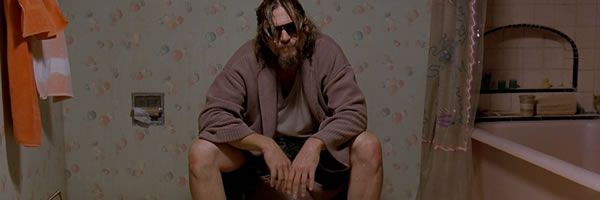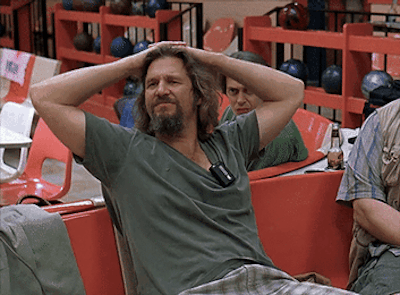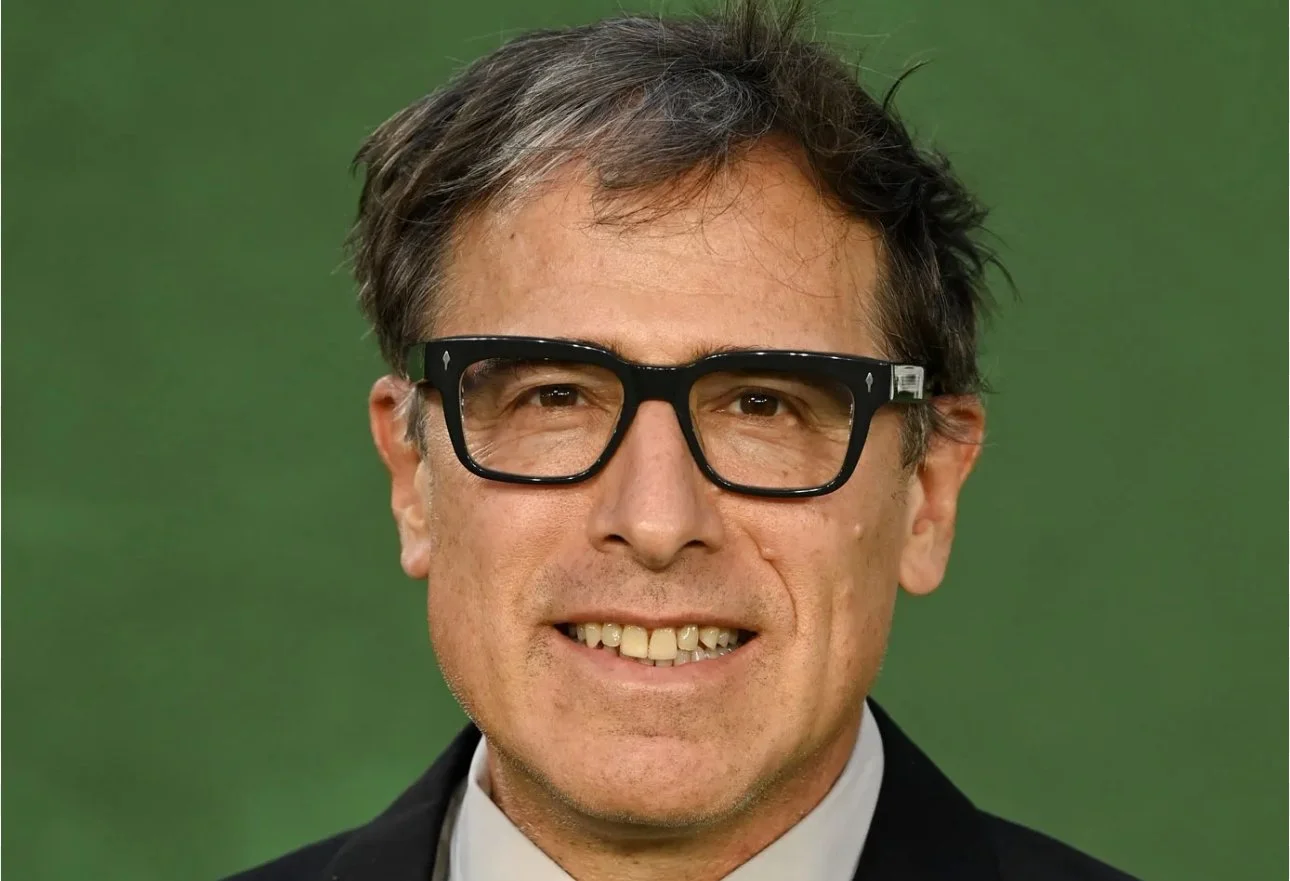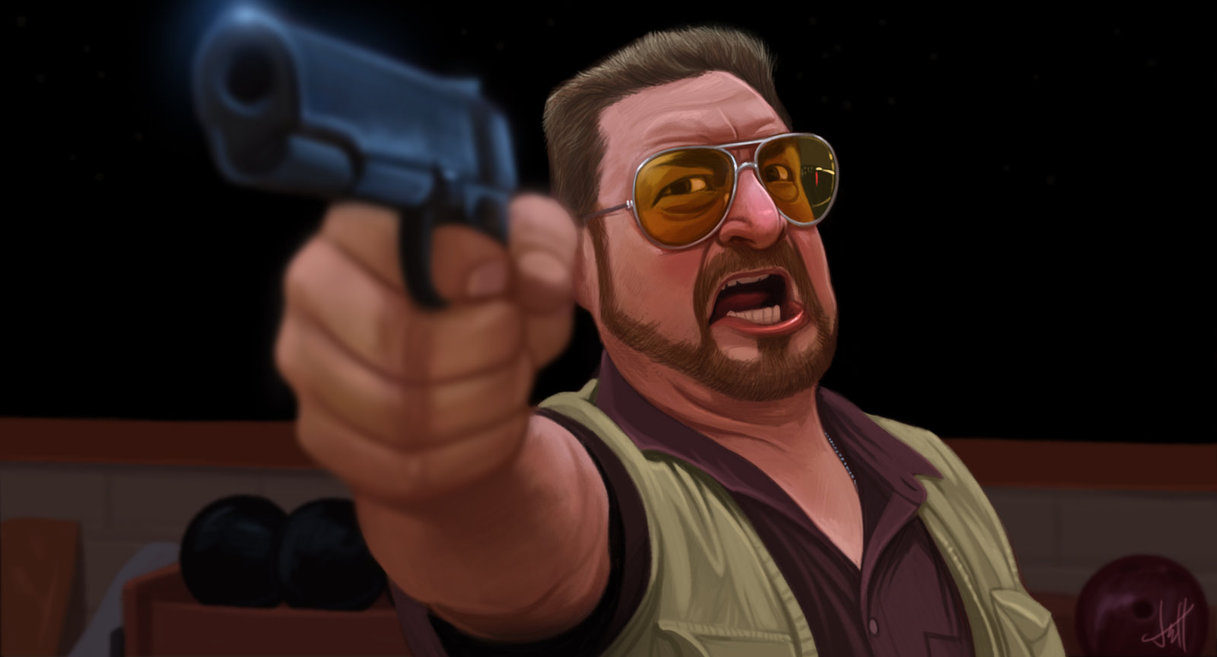
Joel and Ethan Coen’s The Big Lebowski celebrated its 20 year anniversary (3.6.98) this past Monday, and it seems like everyone’s celebrating this landmark release. A film which most people will admit demands repeat viewings and rewards them to greater degrees every single damn time. It's an American comedy classic, which has even spawned The annual Lebowski Fest, where fans dress up as the characters, oddly enough started in Louisville, Kentucky, back in 2002 and now an annual event at almost every major English-speaking city in the world.
Surprisingly critics weren't necessarily on-board with the film back in 1998, the mixed reviews "Lebowski" receive is seen as rather dumbfounding today, but I remember the time of its release, its anticipation coming off the heels of the Coen's best movie "Fargo," people expected the second-coming. They kind of got it but didn't realize it at the time because "Lebowski" was tonally and structurally at odds with the Coen's wintry 1996 masterpiece. Something that's affected Stanley Kubrick's career as well, always delivering the unexpected and dumbfounding critics to the point where his films would later be re-analyzed as the classics that they are today.
David Denby wrote in a New Yorker write-up back in 2008 that the film “received mediocre reviews and did little initial business.” Denby counted himself as one the film's dissidents “It’s only amusing the first time the Dude gets lost in his own story—a story so incoherent that he can’t explain it to anyone,” Denby was quoted as saying in 1998, “What’s the point of scoring off morons who think they are cool? Jeff Bridges has so much dedication as an actor that he sacrifices himself to the Coen brothers’ self-defeating conception. Even Bridges can’t open up a character who remains unconscious.” Roger Ebert chimed in himself with a mixed review, again because of the confusing, Raymond Chandler-esque plot which “rushes in all directions and never ends up anywhere.” However more than a decade later he reconsidered the film, said he was wrong and included it in his "Great Movies" book.
The film's plot was all over the place, as Jeet Heer of the New Republic described it as about "A supposed kidnapping of a rich man’s trophy wife, and a Cheech &Chong–style stoner comedy. Interspersed throughout are Busby Berkeleyesque musical numbers about the Dude’s imaginative inner life ... viewed through a haze of marijuana smoke and White Russians. The characters in the movie are not realistic but parodic or even grotesque: not just the Dude, with his Buddha-like calm that verges on complete disengagement, but also his manically aggressive bowling buddy Walter (John Goodman), the browbeating millionaire who shares the Dude’s birth name of Jeffrey Lebowski (David Huddleston), the runaway nympho Bunny Lebowski (Tara Reid), and fleeting roles that include a high-talking Heffner-esque pornographer and a feminist performance artist."

Some of the critics who didn’t like it included L.A. Times' Kenneth Turan, Variety’s Todd McCarthy, Chicago Reader’s Jonathan Rosenbaum, and Entertainment Weekly's Owen Gleiberman. His 3.6.98 EW review: “Nearly everything in The Big Lebowski is a put-on, and all that leaves you with is the Coens’ bizarrely over-deliberate, almost Teutonic form of rib nudging,” he wrote. “It’s as if the film itself were standing off to the sidelines, saying ‘Look, isn’t this a hilarious concept?’”
The trick in "understanding" the film lies in whether you dare to accept a film where the plot is less important than the characters themselves. Some people just can't fathom watching a film purposely overstuffed with a plot so as to make it almost irrelevant to even follow. The film is part of a rich, almost exclusive club of films that fall into a stoner, almost inexplicable cinematic medium of plotless detective stories (Robert Altman's "The Long Goodbye," Paul Thomas Anderson's "Inherent Vice," and Arthur Penn's "Night Moves").






